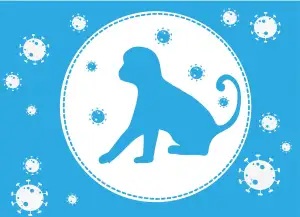Monolaurin for UTI: A Natural Approach to Combat Urinary Tract Infections

Monolaurin is a natural compound derived from lauric acid, a medium-chain fatty acid found in coconut oil and breast milk. It is known for its potent antimicrobial properties, particularly against bacteria, viruses, and fungi. Monolaurin works by disrupting the lipid membranes of these pathogens, leading to their destruction. Due to its broad-spectrum antimicrobial activity and low toxicity, monolaurin has gained attention as a potential alternative treatment for various infections, including urinary tract infections (UTIs).
Understanding Urinary Tract Infections (UTIs)
Urinary Tract Infections (UTIs) are bacterial infections that commonly affect the bladder, urethra, or kidneys. They occur when bacteria enter the urinary tract through the urethra and multiply, leading to inflammation and infection. Symptoms of UTIs include a strong, persistent urge to urinate, a burning sensation during urination, passing frequent small amounts of urine, cloudy or strong-smelling urine, and pelvic pain in women. UTIs are more common in women than men due to their shorter urethras which allow bacteria easier access to the bladder. Factors such as sexual activity, contraceptive use, menopause, and underlying health conditions can increase the risk of developing UTIs.
Mechanism of Action of Monolaurin Against UTIs
Monolaurin, a natural compound derived from lauric acid found in coconut oil, exhibits potent antimicrobial properties. It works against UTIs by disrupting the lipid membranes of bacteria, including common pathogens like E. coli. This disruption leads to bacterial death, preventing their ability to adhere to the urinary tract walls and cause infection. Additionally, monolaurin boosts the immune system's response to fight off infections more effectively, making it a promising natural approach to combat UTIs.
Research Studies on Monolaurin for UTIs
Research studies have shown promising results regarding the use of monolaurin for urinary tract infections (UTIs). A study published in the Journal of Medicinal Food found that monolaurin exhibited antibacterial activity against Escherichia coli, a common bacteria causing UTIs. Another study in BioMed Research International demonstrated that monolaurin disrupted biofilm formation, which is crucial for bacterial survival and resistance to antibiotics in UTIs. These findings suggest that monolaurin may be a potential natural alternative for managing UTIs effectively.
Dosage and Administration of Monolaurin for UTIs
When using monolaurin for UTIs, it is essential to follow the recommended dosage guidelines. Typically, a common dosage ranges from 600mg to 2400mg per day, divided into two to three doses. It is advisable to start with a lower dose and gradually increase as tolerated. Monolaurin is often available in capsule or powder form for easy administration. It is crucial to take monolaurin with food to enhance absorption and minimize gastrointestinal side effects. Consulting a healthcare provider before starting monolaurin supplementation is recommended, especially if you are pregnant, nursing, or have underlying health conditions.
Potential Side Effects and Precautions
While monolaurin is generally considered safe for most people, there are a few potential side effects and precautions to be aware of. Some individuals may experience mild gastrointestinal symptoms such as nausea, diarrhea, or stomach cramps when taking monolaurin supplements. It is advisable to start with a lower dosage and gradually increase to assess tolerance.
Additionally, individuals with coconut allergies should exercise caution when using monolaurin as it is derived from coconut oil. Those who are pregnant, breastfeeding, or have underlying medical conditions should consult with their healthcare provider before incorporating monolaurin into their regimen to ensure safety and efficacy. As with any supplement, it is important to follow recommended dosages and guidelines to minimize the risk of adverse effects.
**Conclusion and Future Implications**
In conclusion, monolaurin shows promising potential as a natural approach to combat urinary tract infections (UTIs). Its antimicrobial properties, specifically against bacteria like E. coli, make it a valuable option for UTI management. Research studies have demonstrated its effectiveness in inhibiting bacterial growth and reducing the severity of UTI symptoms.
Looking ahead, further research is needed to explore the full extent of monolaurin's benefits for UTIs. Clinical trials with larger sample sizes can provide more robust evidence of its efficacy and safety profile. Additionally, investigating potential synergies with conventional UTI treatments could offer new insights into combination therapies.
As interest in natural remedies grows, monolaurin stands out as a promising avenue for addressing UTIs effectively and potentially reducing reliance on antibiotics. Embracing this natural alternative could pave the way for more holistic approaches to managing urinary tract infections in the future.
Published: 18. 03. 2024
Category: Health



